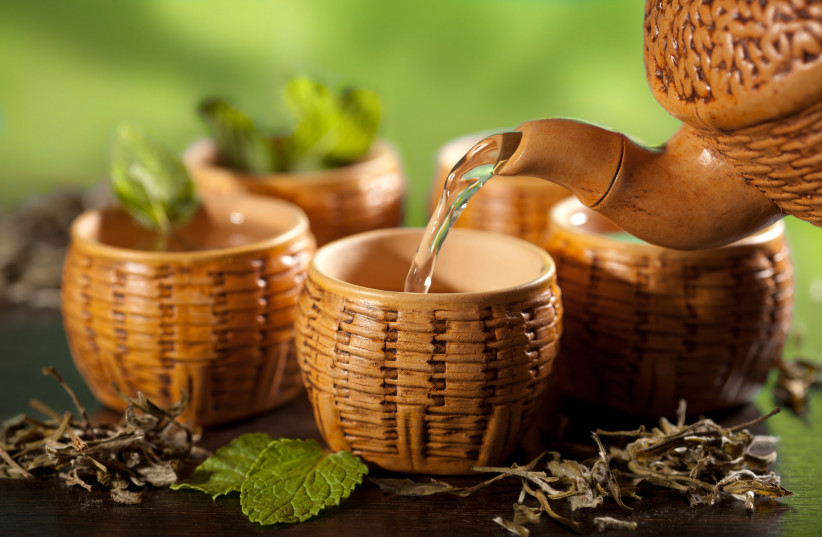We're all looking for easy ways to improve our health, and what's easier than drinking a cup of tea? Especially one that has been sold to us for years as a miracle cure.
Products based on plants and other active ingredients, like green tea, are marketed as health products with abilities to help prevent cancer, prevent heart and metabolic disorders, anti-inflammatory properties and more.
In fact, as of today, green tea is the second-most consumed beverage in the world. Recently, the popularity for its use for weight loss has been on the rise and products based on green tea have been gaining momentum in both Israel and abroad.
But despite this, evidence has also accumulated about the potential damages from increased green tea consumption.
A new study conducted by Israel's Clalit Health Service and Kaplan Medical Center and published in the international peer-reviewed academic journal GastroHep showed that these products could damage the liver, from causing inflammation of the liver to outright liver failure.

The study was conducted by Prof. Steven Melnick, a gastroenterology and internal medicine specialist at Kaplan.
The problem with green tea: Botanical toxins
According to the study, there are over 100 documented cases of liver inflammation due to drinking green tea.
This inflammation is the direct result of botanical toxins in the tea plant and is most likely the result of a metabolic reaction.
In some cases, drinking more green tea outright led to liver failure, especially in women.
The study says it isn't clear exactly which components cause liver damage since there are a large number of compounds from different varieties. However, it is clear that for some people, combining green tea with other drugs and herbs can lead to severe liver disease.
"It is important to note that liver inflammation and liver failure due to green tea drinking is rare," Melnick said. "In addition, it is also very hard to diagnose because it's difficult to diagnose a direct connection between drinking green tea and liver failure. At the same time, though, evidence has accumulated from cases around the world about people who got hepatitis after drinking more green tea."
"It is important to note that liver inflammation and liver failure due to green tea drinking is rare. In addition, it is also very hard to diagnose because it's difficult to diagnose a direct connection between drinking green tea and liver failure. At the same time, though, evidence has accumulated from cases around the world about people who got hepatitis after drinking more green tea."
Steven Melnick
Melnick said he recently came across a case where a 23-year-old patient drank 2-3 cups of green tea every day and within a month deteriorated to such an extent that a liver transplant was required.
"This is just another example that people who consume these products should be aware of the possibility of complications and consult their family doctor if suspicious symptoms appear," he said.
Other natural products that are bad for you
While we tend to think that anything natural is healthy and safe, this isn't the first time it's been linked to some terrifying consequences.
On October 22, a national conference of gastrology experts held in the US saw the presentation of data on five new cases of liver disease that only occured after consuming supplements with turmeric.
In May 2021, the US National Institute of Diabetes and Digestive and Kidney Diseases presented data on over a dozen similar cases.
And it isn't just turmeric that causes unexpected side effects. Other cases were presented of liver damage caused by other nutritional supplements.
In one case, a 19-year-old developed severe kitching and yellow skin due to taking supplements with Ashwagandha. In another case, a 55-year-old woman suffered from itching, dark urine and loss of appetite after drinking herbal tea with Rhubarb, Chinese scutella and jasmine gardenia.
